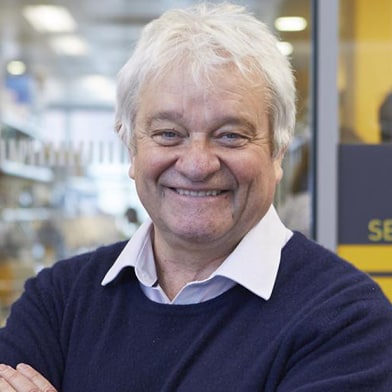A hard Brexit could ‘cripple’ UK science according to The Francis Crick Institute and 29 Nobel Prize winners, with a new survey showing half of the Institute’s staff are more likely to seek positions outside of Britain post-Brexit.
The Crick is the UK’s largest biomedical lab, acting as a beacon for top scientific talent around the world, however the survey suggests that this might no longer be the case if a hard Brexit emerges.

Pictured: The Francis Crick Institute director, Paul Nurse
Crick director Paul Nurse, said: “This survey reveals the depth of feeling amongst scientists that a hard Brexit will seriously damage UK research, and that the government is not paying enough attention to science in the Brexit negotiations.”
An overwhelming majority of staff (97%) based at the UK’s biggest biomedical lab also believes a hard Brexit would result in a very bleak future for UK research, as global talent attraction and retention would be at risk.
It also said only 3% of scientists believe that their concerns are being heard by the UK government and only 4% of them feel that the government is striving for a good deal for science.
Nurse added: Science and research matter for the UK’s economic growth, for the nation’s health and quality of life, and for the environment. The overwhelming negativity of scientists towards a hard Brexit should be a wake-up call to the country and the government.”
Nurse is now urging for a deal that replaces the science funding lost due to the Brexit blow, allowing for freedom of movement for top talented scientists.
The concerns are backed by 28 other Nobel Prize winning scientists from across Europe, who have written a letter to UK PM Theresa May and EU President Jean-Claude Juncker.
The letter, led by President of the Royal Society Venki Ramakrishnan, a structural biologist, calls for a close co-operation between the UK and EU to preserve vital scientific research.
Science minister Sam Gyimah told the BBC Radio 4 Today programme that there is a £7bn “plan to ensure that, deal or no deal, there will be no cliff-edge for UK science”.

UK science minister Sam Gyimah
This plan concerns “unprecedented amounts of money” going into research and development over the next five years, he says.
However Nurse claims this figure won’t directly replace the £1bn funding that could be lost, and it still doesn’t answer concerns regarding the mobility of scientists post-Brexit.
The sentiment echoes those coming from the pharma and biotech sectors, though they have largely stayed away from making statements about political decisions, such as the choice between a hard and a soft Brexit. Nevertheless, the ABPI’s Mike Thompson recently warned that even the existing draft transition deal was ‘untenable’ for the UK’s life science sector.
As the clock ticks nearer to 29 March 2019, big UK pharma companies are preparing for a ‘no deal’ Brexit, which includes the stockpiling of medicines in case of potential shortages.




